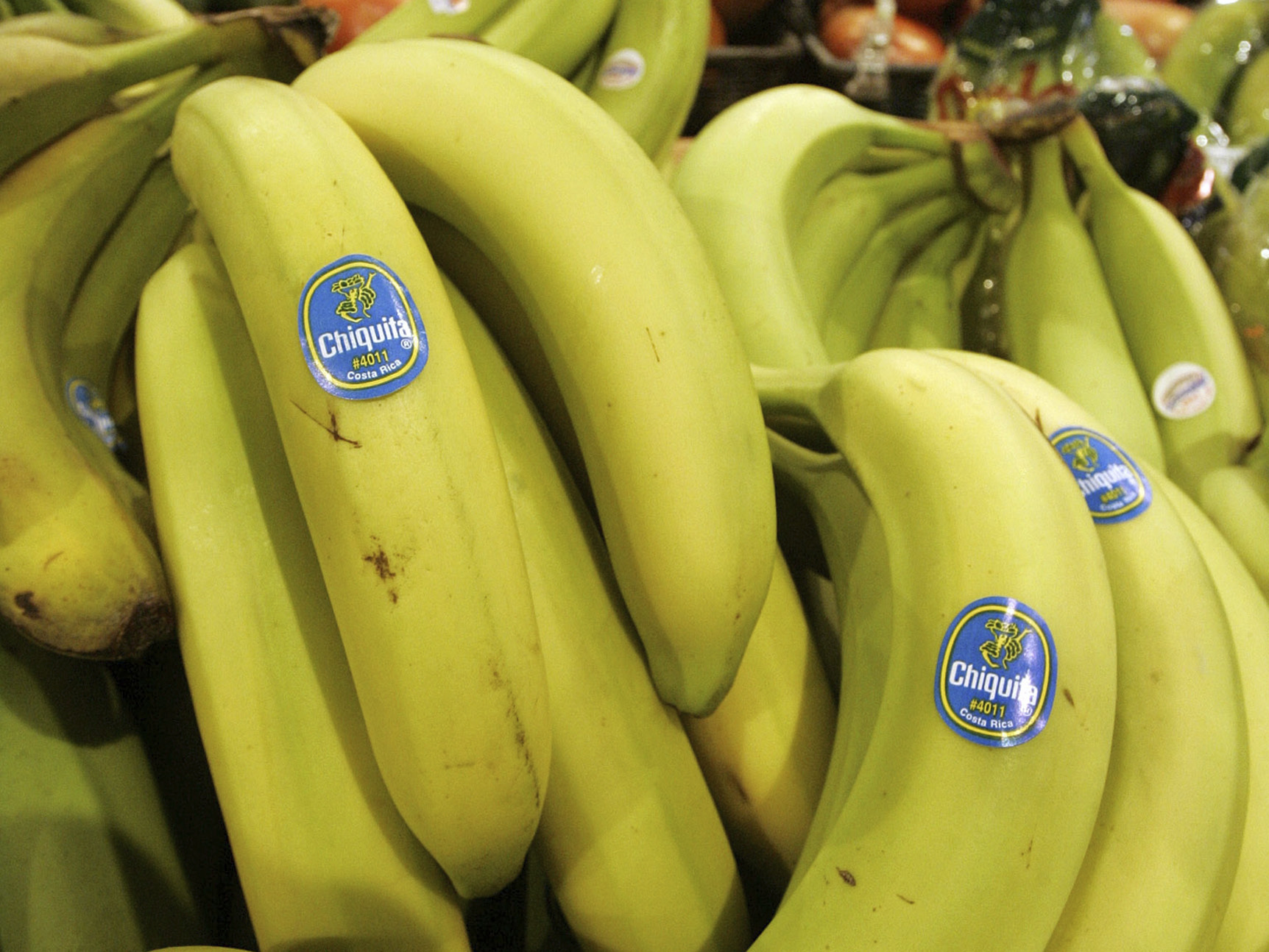The verdict Monday by a jury in West Palm Beach marks the first time the company has been found liable in any of multiple similar lawsuits pending elsewhere in U.S. courts, lawyers for the plaintiffs said. It also marks a rare finding that blames a private U.S. company for human rights abuses in other countries.
"This verdict sends a powerful message to corporations everywhere: profiting from human rights abuses will not go unpunished. These families, victimized by armed groups and corporations, asserted their power and prevailed in the judicial process," Marco Simons, EarthRights International General Counsel and one plaintiff's lawyer, said in a news release.
"The situation in Colombia was tragic for so many," Chiquita, whose banana operations are based in Florida, said in a statement after the verdict. "However, that does not change our belief that there is no legal basis for these claims."
According to court documents, Chiquita paid the United Self-Defense Forces of Colombia — known by its Spanish acronym AUC — about $1.7 million between 1997 and 2004. The AUC is blamed for the killings of thousands of people during those years.
Chiquita has insisted that its Colombia subsidiary, Banadex, only made the payments out of fear that AUC would harm its employees and operations, court records show.
Reacting to the ruling on social media, Colombian president Gustavo Petro questioned why the U.S. justice system could "determine" Chiquita financed paramilitary groups, while judges in Colombia have not ruled against the company.
"The 2016 peace deal ... calls for the creation of a tribunal that will disclose judicial truths, why don't we have one?" Petro posted on X, referencing the year the civil conflict ended.
The verdict followed a six-week trial and two days of deliberations. The EarthRights case was originally filed in July 2007 and was combined with several other lawsuits.
"Our clients risked their lives to come forward to hold Chiquita to account, putting their faith in the United States justice system. I am very grateful to the jury for the time and care they took to evaluate the evidence," said Agnieszka Fryszman, another attorney in the case. "The verdict does not bring back the husbands and sons who were killed, but it sets the record straight and places accountability for funding terrorism where it belongs: at Chiquita's doorstep."
In 2007, Chiquita pleaded guilty to a U.S. criminal charge of engaging in transactions with a foreign terrorist organization — the AUC was designated such a group by the State Department in 2001 — and agreed to pay a $25 million fine. The company was also required to implement a compliance and ethics program, according to the Justice Department.
